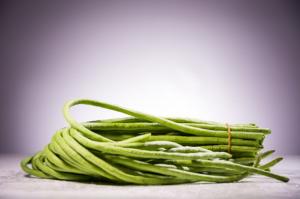Introduction
Rainwater is a natural resource that has been used by humans for centuries. It is an essential element for the growth of crops and plants, but is rainwater good for indoor plants? This is a question that many people have been asking lately, especially those who are trying to make their homes more eco-friendly. In this article, we will explore the benefits of using rainwater for indoor plants and whether it is a good choice for your household.
Benefits of Rainwater for Indoor Plants
One of the main benefits of using rainwater for indoor plants is that it is free of chemicals and additives that can be harmful to plants. When you use tap water, it usually contains chlorine and fluoride, which can cause damage to the root system of plants. Rainwater is also slightly acidic, which is ideal for many indoor plants that prefer a slightly acidic environment.
Rainwater is also beneficial because it contains trace elements and minerals that are not present in tap water. These elements are essential for plant growth and development, and can improve the overall health of your indoor plants. Additionally, rainwater is more oxygenated than tap water, which can also help your plants to thrive.
Collecting and Storing Rainwater
If you are planning on using rainwater for your indoor plants, you will first need to collect it. This can be done by setting up a rain barrel or other collection system outside. It is important to ensure that the collection system is clean, and that the water is not contaminated by leaves, debris or animal waste.
Once collected, rainwater should be stored in a clean container, such as a food-grade plastic barrel or ceramic pot. It is important to keep the container covered to prevent evaporation and contamination from insects or small animals. If you are storing rainwater for an extended period of time, you may need to add a small amount of bleach or other disinfectant to prevent the growth of algae or bacteria.
Using Rainwater for Your Indoor Plants
When using rainwater for your indoor plants, it is important to take a few precautions. Firstly, you should always test the water to ensure that it is not too acidic or alkaline for your plants. You can do this by using a pH testing kit, which can be purchased at most garden centers or online.
Additionally, you should avoid using rainwater if it has been collected during a heavy storm, as this water can be too acidic or contain pollutants that can harm your plants. Instead, wait a few days after a storm to collect the rainwater, or use it for outdoor plants that are less sensitive.
Finally, it is important to use rainwater in moderation. While it is a great resource for your plants, it should not be the sole source of water. Instead, use rainwater in combination with tap water or other sources to ensure that your plants are getting all the nutrients and minerals they need.
Conclusion
In conclusion, rainwater can be a great choice for indoor plants. It is free of harmful chemicals and additives and contains trace elements and minerals that can improve plant health. However, it is important to collect and store rainwater properly, test it for acidity, and use it in moderation. By following these guidelines, you can ensure that your indoor plants thrive and grow in a healthy and eco-friendly environment.

 how many times do yo...
how many times do yo... how many planted tre...
how many planted tre... how many pine trees ...
how many pine trees ... how many pecan trees...
how many pecan trees... how many plants comp...
how many plants comp... how many plants can ...
how many plants can ... how many plants and ...
how many plants and ... how many pepper plan...
how many pepper plan...































